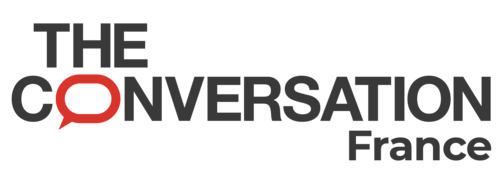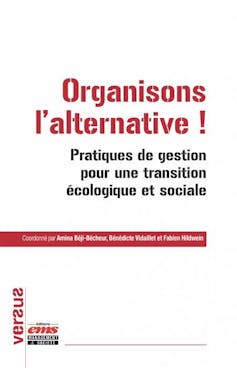How to republish
Read the original article in english and consult terms of republication.
Cooperatives, solidarity supermarkets, and more... Alternative organisations aren’t built in a day!

What do a cooperative supermarket, a living lab, a crowdfunding platform and a group of whistleblowers have in common? They are all ways that citizens are organising to resist against a capitalist model criticised for being predatory and destructive. They show that alternatives remain possible and are already active. One example of this activity lies in the protest movement against the destruction of community gardens to make room for Olympic infrastructure.
Look closer at the functioning of these alternative organisations or ‘real utopias’ (from the name of the book by American sociologist Erik Olin Wright), and you will see their desire, ability and difficulties to implement democratic governance, social inclusion and performance that better includes environmental and social perspectives.
Democratic ideals
Research collected in the work we edited, “Organisons l’alternative !” (“Let’s Organise the Alternative!”), does not solely aim to consider these options theoretically, but also, and perhaps above all, to question how they are applied and look into the organisational structures that make them possible in daily life. The objective is to show the variety of organisations in which these alternatives may be implemented, as was recently done for crowdfunding.
The studies relate to four major groups of organisations. The first is made up of banking bodies, crowdfunding platforms and insurance companies, aiming to bring democratic power back to the financial sphere and make it more accessible to citizens.
The second covers cooperatives who allow their workers and beneficiaries alike to participate in collective decisions and therefore explore other kinds of relationships to work or consumption. Most of these take the form of Cooperative Company of Collective Interest (SCIC), and work in a wide variety of areas, ranging from distribution to housing, including the energy sector and accounting firms.
The third group is made up of more heterogeneous organisations. These include living labs, whistleblower bodies, psychiatric mutual aid groups and other coworking spaces that try to create a community around their members’ collective challenges, in line with values of mutual aid, cooperation and even solidarity.
The fourth and last group relates to the sharing and transmission of knowledge and information, whether through alternative platforms or participatory research.
All these alternatives embody ideals of democracy and economic and social change. But they are confronted by limitations related to their practical implementation.
Beyond structural transformations
Studying alternative organisations involves addressing their tensions and constraints. In our work, two specific cases are compared. The first is the La Louve supermarket, a shop located in the 18th district of Paris, where members of the cooperative suggest products according to various economic, social or environmental criteria. Sales performances of the very same members determine whether products become a feature on the shelves. The second is Lyon-based SCIC AlterConso, which brings together farmers and consumers, all members of the organisation.
These food distribution-sector initiatives think about work differently. Each cooperative offers alternative forms of work and consumption, going beyond the usual limits of employment, particularly in terms of the professional hierarchy. La Louve involves its clients in the work, and in return, offers them lower prices, while AlterConso includes employees and consumers in its collective decision-making processes.
One of the most important findings of these joint studies is that it does not suffice to renounce the traditional employment contract to be free of its constraints. Organisations can easily fall into repeating instrumental views of work, thereby rendering underlying tensions invisible. In other words, only through collective, in-depth and constant reflection can they truly reinvent work.
Institutional context and contradictions
Two key ideas emerge from these case studies.
To transform practices, it is important to cultivate a certain ‘orgadiversity’, a neologism that we created based on the concept of biodiversity. Encouraging diversity among alternative organisations remains one of today’s essential challenges, to avoid going round in circles and repeating the same mistakes from models that we have long known to be limited. To successfully create alternatives, we need to trial a variety of combinations of work, statuses, connections, and modes of governance and funding.
The second idea is that to be sustainable, alternative organisations must equip themselves with management models and tools that are specific to them. Distanced from dominant models. yet not quite able to radically abandon them due to being founded in the institutional framework, alternative organisations cannot escape contradictions and ambiguities. The challenge for them resides in how to function while remaining aligned with their missions and values.
The issue of the institutional context seems essential for alternative organisations, as shown by the case of student insurance companies. Despite well founded structures and values, student insurance companies have moved far away from the principles of mutual benefit and public service that governed when they were created. This shift can be explained by the competition between various insurance companies and the fact that multiple organisations were created that offer a relatively similar service, in contrast with the cooperation inscribed in their values.
The research in our work definitively shows that there is a wide variety of alternative organisations providing inspiration for innovation in the social and environmental transition. They are building paths, as well as other things, to create new imaginaries and construct more desirable futures.
This article is based on the collective work “Organisons l’alternative ! Pratiques de gestion pour une transition écologique et sociale” published this year by EMS Editions and edited by Amina Béji-Bécheur, Bénédicte Vidaillet and Fabien Hildwein.
Identity card of the article
| Original title: | Cooperatives, solidarity supermarkets, and more...Alternative organisations aren't built in a day! |
| Authors: | Amina Béji-Bécheur, Bénédicte Vidaillet, and Fabien Hildwein |
| Publisher: | The Conversation France |
| Collection: | The Conversation France |
| License: | The original version of the article was published in French by The Conversation France under Creative Commons license. See the original article. An English version was created by Hancock & Hutton for Université Gustave Eiffel and was published by Reflexscience under the same license. |
| Date: | May 4th 2022 |
| Langages: | French and english |
| Keywords: | Consumer, organisation, competition, mutual, management, farmers, cooperative economy, employees, institutions, supermarkets |


![[Translate to English:] Licence creative commons BY-SA 4.0 [Translate to English:] Licence creative commons BY-SA 4.0](https://reflexscience.univ-gustave-eiffel.fr/fileadmin/ReflexScience/Accueil/Logos/CCbySA.png)